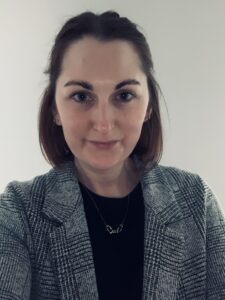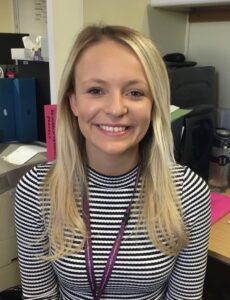NHS leaders recognise crucial contribution to patient care of healthcare scientists in the North West
This Healthcare Science Week (11-15 March), health leaders at NHS England North West are celebrating healthcare scientists who work across all patient pathways in the NHS delivering crucial healthcare to patients.
Over 55,000 NHS staff work in more than 50 specialist healthcare science roles across England. Using their knowledge of innovation, science and technical skills, the work that they do helps prevent, diagnose and treat illness.
This includes working both in laboratories and directly with patients across a range of specialisms, including audiology, medical physics, medical engineering, pathology, cardio respiratory services, prosthetics and fertility.
Stephanie Williams is a Senior Biomedical Scientist at Blackpool Teaching Hospitals NHS Foundation Trust. She says her role provides her with a lot of variety with no two days ever the same.
Stephanie, who started off as a Medical Laboratory Assistant during a gap year after college, said: “Up until this point I’d always thought I wanted to be a doctor, but after spending time in pathology I decided to embark on a degree in Biomedical Science at Liverpool John Moores University, after which I secured a job in the microbiology department here at Blackpool Teaching Hospitals and completed my training to become a Specialist Biomedical Scientist.”
After working at Blackpool Hospital for 10 years, Stephanie worked as a Microbiology Application Specialist in the private sector. She said: “This role gave me the opportunity to spend time in different pathology departments across the UK, Europe and the US, an amazing experience. I’ve been back in the NHS now for 18 months working closely with our next generation of scientists. It’s a part-time role which gives amazing work-life balance allowing me to continue to do what I am passionate about but also juggle a toddler’s diary.”
Not all healthcare scientists are based in laboratories nor do they all spend their time looking down microscopes. Josna George is a healthcare scientist whose role as a Senior Audiologist means she has a lot of direct patient contact.
Originally from India where she qualified, Josna has been working in audiology at Furness General Hospital which is run by University Hospitals of Morecambe Bay NHS Foundation Trust since 2022.
Josna feels very much at home in Morecambe Bay. “When I saw the opportunity to work at Morecambe Bay, I researched the area and found that it was quiet and surrounded by greenery which reminded me of my home.
“Our patients are sometimes very frustrated if they have a severe tinnitus or a hearing loss that affects them daily, particularly with their communication and social interactions. So, when we help them with a he

aring test, counselling and with the right hearing aid, it helps to improve their quality of life,” she said.
Holly O’dea is a Clinical Scientist in Genomics who has recently started a new role as Education & Training Lead for the North West Genomic Laboratory Hub.
Holly said: “I completed my undergraduate degree in BA Biological Sciences at Oxford University followed by an MSc in Medical Genetics and another MSc in Clinical Sciences (Genomics), and the NHS Scientist Training Programme (STP) in 2019. After completing my training, I created my ‘The Scouse Scientist’ social media accounts with the aim to inspire the next generation of scientists and provide a role model in STEM that young people can relate to. I’ve visited a number of schools in the North West and I am passionate about breaking down barriers and eliminating the stereotypes associated with careers in science.”
Chris Cutts, Regional Director of Workforce, Training and Education at NHS England North West, said: “Healthcare science ensures that the NHS adapts to the requirements of a modern world through innovation and technological advances. The people who underpin this work, the healthcare scientists, play a very important role in the NHS. Their work includes developing cancer treatments, helping to create families, diagnosing what is making a patient ill, repairing vital medical equipment such as kidney dialysis machines, and helping patients with heart and respiratory problems.
“With it being Healthcare Science Week, it is important to recognise the work that they do behind the scenes to ensure that our patients get the best possible, often life-saving care they need.”
Healthcare Science Week is held each year to raise awareness about healthcare science and celebrate the diversity of the workforce and professions. For more information about healthcare science careers click here.
